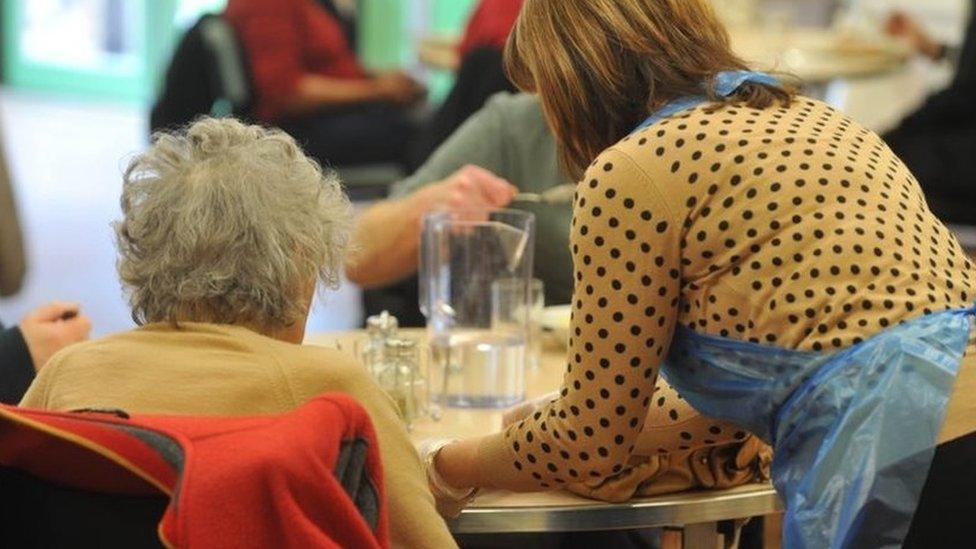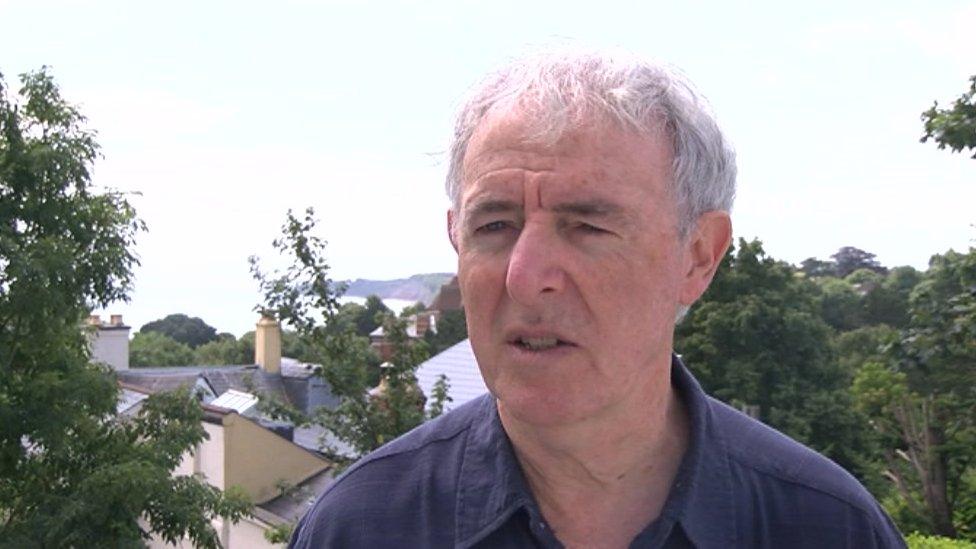Paying to care for the baby boomers
- Published

In a guest blog, Daniel Davies looks at an idea emerging as the solution to meeting the cost of caring for an aging population.

"They are playing golf now. It's when they are 87 - that's when you've got the problem."
Economist Gerry Holtham is talking about the baby boomer generation born after the Second World War, now enjoying retirement.
And the problem he has in mind is what happens when old age forces these people to hang up their clubs. How will society cope with the cost of looking after an aging population?
It is among the toughest questions facing governments across the UK and one that helped derail the Conservative campaign for last year's general election.
Prof Holtham thinks he has an answer; a new form of national insurance, external.
He and I were talking late last year, shortly after I heard Finance Secretary Mark Drakeford heap praise on Prof Holtham's proposal.
At the time, it was on a shortlist of four potential taxes Mr Drakeford was considering introducing.
He has since plumped for another tax - a land value tax - as a way to test the Welsh Assembly's new tax power.

Mark Drakeford has the scope to propose new tax ideas as the need to raise revenue increases
But Prof Holtham's idea hasn't gone away. In fact, Mr Drakeford is still keen, as he made clear in an interview with my colleague Paul Martin on Wales Live last night.
He proposes that everyone who works in Wales pays into a fund. The proceeds would help pay for social care.
The older you are, the more you pay, to make it "fair intergenerationally".
"The youngsters have been screwed enough already. We don't want to screw them again," Prof Holtham says.
He also recommends strict rules to stop Wales becoming a home for retirees from the rest of the UK who have not contributed.
Big technical and political obstacles will need to be overcome if it is ever going to happen.
Some think Mr Drakeford hopes to include a version of the levy in Welsh Labour's next assembly election manifesto. Who knows - he may even be the party's leader by then.
As a result of Labour's last manifesto, people are being allowed to keep more and more of their money if they have to move into a care home.
But it's unlikely to be enough to solve the conundrum of how we fund social care.

Gerry Holtham: "The urgent always beats the important"
When austerity started to bite in 2010, the Welsh Government initially tried to spread the pain of cuts between the NHS and social care.
Even so, council spending on social care has struggled to keep pace with an older population that is growing faster in Wales than any other UK nation.
To get back to where things were in 2010, spending may need to rise 2.5% a year by 2021, according to a report by Wales Public Services 2025, external, a think tank at Cardiff University.
In 2016 the Health Foundation estimated the pressures on social care in Wales would rise by 4.1% a year over the next 15 years, external because of changing demographics and more people with chronic conditions.
All parties agree something must be done. Successive commissions and inquiries have proposed solutions.
So why have years of agonising delivered little progress? Prof Holtham thinks he can answer that too.
"In politics the urgent always beats the important," he says.
"This is a problem which is going to get progressively worse and hits its climax 15, 25 years out.
"They have been in austerity mode," he says of politicians.
"In a situation of austerity we always postpone what you can postpone and, because this is a future problem, they have been postponing and postponing."
- Published7 March 2018
